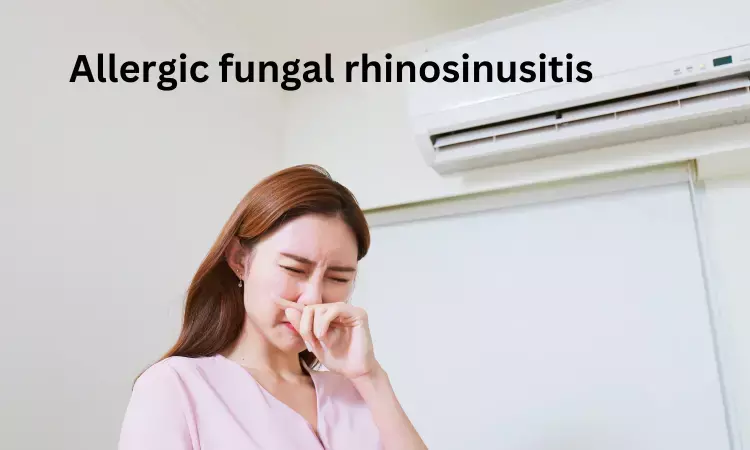- Home
- Medical news & Guidelines
- Anesthesiology
- Cardiology and CTVS
- Critical Care
- Dentistry
- Dermatology
- Diabetes and Endocrinology
- ENT
- Gastroenterology
- Medicine
- Nephrology
- Neurology
- Obstretics-Gynaecology
- Oncology
- Ophthalmology
- Orthopaedics
- Pediatrics-Neonatology
- Psychiatry
- Pulmonology
- Radiology
- Surgery
- Urology
- Laboratory Medicine
- Diet
- Nursing
- Paramedical
- Physiotherapy
- Health news
- Fact Check
- Bone Health Fact Check
- Brain Health Fact Check
- Cancer Related Fact Check
- Child Care Fact Check
- Dental and oral health fact check
- Diabetes and metabolic health fact check
- Diet and Nutrition Fact Check
- Eye and ENT Care Fact Check
- Fitness fact check
- Gut health fact check
- Heart health fact check
- Kidney health fact check
- Medical education fact check
- Men's health fact check
- Respiratory fact check
- Skin and hair care fact check
- Vaccine and Immunization fact check
- Women's health fact check
- AYUSH
- State News
- Andaman and Nicobar Islands
- Andhra Pradesh
- Arunachal Pradesh
- Assam
- Bihar
- Chandigarh
- Chattisgarh
- Dadra and Nagar Haveli
- Daman and Diu
- Delhi
- Goa
- Gujarat
- Haryana
- Himachal Pradesh
- Jammu & Kashmir
- Jharkhand
- Karnataka
- Kerala
- Ladakh
- Lakshadweep
- Madhya Pradesh
- Maharashtra
- Manipur
- Meghalaya
- Mizoram
- Nagaland
- Odisha
- Puducherry
- Punjab
- Rajasthan
- Sikkim
- Tamil Nadu
- Telangana
- Tripura
- Uttar Pradesh
- Uttrakhand
- West Bengal
- Medical Education
- Industry
Itraconazole therapy effective treatment option in patients with Allergic fungal rhinosinusitis

Allergic fungal rhinosinusitis (AFRS) was first reported as a distinct clinical entity in 1976. AFRS is coupled with the clinical entity of fungus ball (mycetoma) as a form of noninvasive fungal sinus disease, separate from and unrelated to invasive fungal sinus pathology.
Currently, the most practiced treatment for allergic fungal rhinosinusitis (AFRS) is surgical debridement along with topical or systemic steroids. However, prolonged systemic steroid therapy comes with a cost on the patient causing several side effects. Systemic antifungals have been used earlier as an adjunct to steroids or in refractory cases, but they have not been used as the sole primary treatment.
A recent study looked into the effectiveness of sole Itraconazole therapy in patients with AFRS by comparison of clinical, radiological, and biochemical parameters before and after treatment, there was a improvement in people in whom steroids are contradicted and surgery still remains as the primary option for complete clearence. The findings are published in the journal Laryngoscope.
Researchers recruited thirty-four patients diagnosed with localized sino-nasal AFRS were recruited and started on the tablet Itraconazole 200 mg orally twice daily for 3 months with q2weekly monitoring of liver function tests. The baseline clinical, radiological, and biochemical parameters were then compared with those after completion of 3 months of Itraconazole therapy.
The key findings of the study are
• There was significant difference between all the parameters-clinical: SNOT-22 score (p < 0.001) and Meltzer endoscopy score (p < 0.001).
• radiological: Lund-Mackay score (p = 0.004) and 20-point CT score (p = 0.002), and biochemical: serum total IgE (p < 0.001), Aspergillus-specific IgE (p < 0.001).
• absolute eosinophil count (p < 0.001). The clearance of the disease was more in anterior sinuses than the posterior ones.
Researchers concluded “Prolonged Itraconazole can be given as sole therapy in AFRS, especially in patients for whom steroids are contraindicated or in those who are awaiting surgery. It can result in symptomatic and radiological improvement, but surgery still remains the definitive treatment option for AFRS for complete clearance of disease.”
Reference: Shah B, Kajal S, Bhalla AS, Madan K, Viswanathan GK, Thakar A, Sikka K, Bairwa M, Verma H. Prolonged Itraconazole Therapy as Sole Treatment for Patients with Allergic Fungal Rhinosinusitis. Laryngoscope. 2023 Jun 28. doi: 10.1002/lary.30841. Epub ahead of print. PMID: 37377280.
MSc. Neuroscience
Niveditha Subramani a MSc. Neuroscience (Faculty of Medicine) graduate from University of Madras, Chennai. Ambitious in Neuro research having worked in motor diseases and neuron apoptosis is interested in more of new upcoming research and their advancement in field of medicine. She has an engrossed skill towards writing and her roles at Medical dialogue include Sr. Content writer. Her news covers new discoveries and updates in field of medicine. She can be reached at editorial@medicaldialogues.in
Dr Kamal Kant Kohli-MBBS, DTCD- a chest specialist with more than 30 years of practice and a flair for writing clinical articles, Dr Kamal Kant Kohli joined Medical Dialogues as a Chief Editor of Medical News. Besides writing articles, as an editor, he proofreads and verifies all the medical content published on Medical Dialogues including those coming from journals, studies,medical conferences,guidelines etc. Email: drkohli@medicaldialogues.in. Contact no. 011-43720751


